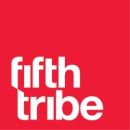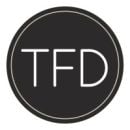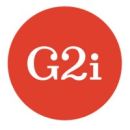The four-day work week gained mainstream traction in 2020, as companies scrambled to keep a burnt-out, fully-remote workforce productive amid a pandemic.
Turns out, employees get happier — and work harder — when companies offer flexible schedules and reduced hours at the same rate of pay.
Landmark studies in Iceland and Japan reveal that the four-day work week may be a viable solution for certain companies coping with a stressed-out workforce, deadline inefficiency, low employee engagement as well as talent acquisition and employee retention in a tight labor market.
In another study — the world's largest to date — 60 UK-based companies participated in a four-day work week trial for the second half of 2022. Ninety percent of them kept the shortened week going even after the trial period ended, with 30 percent committing to a permanent change.
Companies with 4-Day Work Weeks
- Awin
- Bit.io
- Buffer
- DNSFilter
- Elephant Ventures
- GooseChase
- Justuno
- Kickstarter
- Monograph
- Panasonic
- thredUp
Exactly what a four-day work week looks like is unique to each company. While most employers have ditched their 40-hour work week for a 32-hour one — with four consecutive 8-hour shifts leading up to a three-day weekend — others have a different take. Some stack 10-hour work days to maintain the same hourly load, some split the work week down the middle, taking Wednesdays off, while others only exercise it seasonally.
In any case, these companies have adopted a four-day work week policy as a permanent transition in its company culture.
29 Companies With 4-Day Work Weeks
Close’s CRM platform comes with automations and communication features to help sales teams boost their productivity. Close is a fully remote company that offers flexible working hours and lets employees choose whether they want to work five days a week or shift to a four-day week at 80 percent pay.
Augury builds AI solutions to optimize machine and production line health for industrial manufacturing operations. Its technology has applications for businesses in industries ranging from consumer packaged goods and pharmaceuticals to energy and steel. Every other week, team members at Augury enjoy a work week that’s only four days long.
Digible is a digital marketing company that specializes in solutions for the multifamily housing industry. Its offerings include paid media services like native article advertising and programmatic audio advertising, as well as building user-friendly websites optimized to increase visibility and earn more leads. Digible team members enjoy a 32-hour work week that gives them Fridays off. The company says that move has led to better productivity and less employee turnover.
HR tech company Wonderlic provides businesses with assessments for evaluating job candidates and enabling personalized employee development by identifying team members’ individual strengths and weaknesses. In summer 2021, Wonderlic launched a four-day work week trial that was so successful the company made the shortened work week a permanent workplace policy.
The multinational electronics manufacturer, headquartered in Japan, announced it would offer an optional four-day work week in response to new country-wide economic policy guidelines that encouraged employers to back a better work-life balance. The changes also increased flexibility for Panasonic employees, who could now choose to work from home or turn down job transfers that would have otherwise required them to relocate, Mashable reports.
The fintech startup permanently implemented a four-day work week at the start of 2022, following a successful three-month pilot. Bolt collected high scores across morale, productivity, retention and recruitment, with 87 percent of managers reporting that their team was able to maintain productivity and service levels in 20 percent less time.
The online children’s clothing retailer breaks up its 36-hour, four-day work week in nine-hour shifts. In a survey, some members of its 60-person staff said that their work occasionally spills over to Fridays, although they enjoy the flexibility to work at their own pace, according to Fast Company.
The outdoor-oriented tech company adopted a four-day work week — Mondays off — two months into the pandemic as a way to help its employees cope. Results showed that it helped the company, too, reporting a 99 percent, year-over-year growth in annual recurring revenue and a 120 percent increase in user engagement with the platform. The shortened timetable became permanent for the largely remote, 50-person team within a year.
The workplace culture platform shortened its work week to four days without any cuts to salary or employee benefits after a six-month pilot program. According to the company’s website, Emtrain has seen an improvement in its key performance indicators, productivity and happier, more engaged employees since making the switch.
The software company known for its social-media toolkits launched a four-day work week pilot program to support the well-being and mental health of its 89-person team two months after the pandemic broke news. By the end of the month, the shift became permanent. After two years of working on a shortened timetable, 91 percent of Buffer employees report being happier and more productive, while 27 percent confess to working more than four days, using Fridays to catch up, according to a company blog post.
The affiliate marketing platform piloted a four-day work week across a 1,300-member workforce in 17 offices during an 18-month trial. The policy stuck after Awin saw a 13 percent increase in annual gross profits, a 20-point jump in its net promoter score, a 33 percent drop in employee turnover and 21 percent decrease in sick days. Awin allows its employees to either take an extra full day off or choose to keep five working days, featuring three full and two half days.
The project-management software company takes a seasonal approach to its 32-hour, four-day work week, active from May through August every year. Kris Niles, a former Basecamp product designer, wrote in a blog post that the key to a shortened, summer-hour schedule is constraint. “Removing a day each week forces you to prioritize the work that really matters, and let the rest go,” he said. “It’s not about working faster, but learning to work smarter.”
The tech startup creating serverless, shareable databases began taking Fridays off during its 32-hour, four-day work week in 2019 without any reduction in pay. Reflecting on the policy two years after its debut, founder of the San-Francisco-based company Jonathan Mortensen noted in a blog post that “the point of technology is to make us better and faster.”
“Our team is just as productive in four days as they were in five, and have time to spend time with their families, work on creative projects and travel,” he added.
This private institution, located in Buffalo, New York, switched to a four-day, 32-hour work week to curb faculty and staff burnout. After a six-month trial, D’Youville University adopted the new-age timetable for 180 members of its staff and administration department without a reduction in pay or benefits.
The cybersecurity company permanently implemented an alternating four-day work week, which permits employees to rotate a 32-hour work week with a standard, 40-hour work week. This shifts between three groups, securing five-day coverage for the company while affording employees a pair of three-day weekends per month.
The tech-focused venture capital firm spreads its 40-hour work week into four 10-hour days. The company has also gone fully remote, which was a measure out in place at the start of the pandemic. Both changes became permanent fixtures to relieve burnout and maintain work-life balance.
The digital agency implemented its own version of the four-day work week: the nine-day work bi-week. In other words, the team is split into two parts with each side getting every other Friday off. CEO Khuram Zaman told Technical.ly that the policy, which was extended from its trial phase in fall 2020, helped relax his team. Handing off work from one team to the other created a tighter process that soothed bottlenecks and promoted knowledge sharing while allowing clients to mingle with more than one team member.
After the women-centric social media management company permanently adopted a 32-hour, four-day work week, it reported no drop in monthly or yearly revenue, growth of both content engagement and follower base alongside record-high profit margins. In a survey, employees said that they were able to meet deadlines and better manage their workloads without working off the clock in order to fulfill job responsibilities.
This hiring platform, made for engineers by engineers, operates on a 32-hour, four-day work week, unless there are live client projects in progress. Additionally, G2i provides a benefit known as the Developer Health Fund, which covers employee expenses related to burnout prevention and recovery. G2i also publishes content that advocates for a four-day work week and actively positions health and well-being at the forefront of its platform.
The link management platform is another fully-remote tech company that added a four-day work week to its benefits plan to support employees’ overall well-being. The change, however, may only be temporary. GoLinks started its pilot in February 2022 and has “yet to make a decision on whether this will be made permanent,” according to a job post on 4 Day Week. “But so far, the results have been good,” the company noted.
GooseChase, an interactive digital tool inspired by scavenger hunts, has a four-day work week policy that reserves Friday off for the majority of its employees and Wednesday for a portion of its client-facing staff in order to keep the lights on. In an interview, CEO and founder Andrew Cross told The Amino Group that, although the world doesn’t work on four-day weeks just yet, he expects that out-of-office notices and email autoresponders will normalize as more companies follow suit.
The conversion marketing software company rolled out a company-wide four-day work week in Janunary 2022. In a letter from its founders, Justuno cited continued burnout related to the pandemic as a catalyst for the shift. Similar to other client-led companies, its support team would split to ensure Monday through Friday coverage.
The public benefit corporation known for its crowdfunding platform launched a 32-hour, four-day work week following a successful pilot run. The company, sized at about 90 workers, said in a blog post that a shortened schedule “has enabled us all to live brighter, fuller lives and has allowed us to return to work refreshed.”
This tech nonprofit adopted a four-day work week — regulating eight hours per day — after a successful summer trial in July 2021. The extra time to tackle everyday obligations or indulge in self-care has propelled productivity and focus among its workforce, Newsweek reports. “It’s also been a boon to hiring,” a spokesperson from the Massachusetts-based company said. “The quality of hires we’ve made has been excellent.”
The design firm adopted a seasonal four-day work week for its 20-person team throughout the summer months. For the Chicago-based company, it was a practical shift, founder Scott Wilson said, considering the weather and fluctuation in workload. “The focused work, the detailed work, the final work product was as good or better than I’d seen prior,” Wilson told Fast Company.
This software company, which offers a cloud-based suite of management tools for architects and engineers, has operated on a four-day work week since its launch in 2016. It’s up to the employees to decide which day they want off — whether it’s Friday for a three-day weekend or a midweek break. Co-founder Robert Yuen wrote that the shortened calendar encourages personal growth, “which has a long-term impact on [employees’] productivity and the profitability of the business.”
The growth-content agency switched to a 32-hour, four-day work week featuring a three-day weekend as a “big leap of faith.” Nectafy already had a half-day Friday schedule in place, where employees logged off by the afternoon. These hours were further reduced in 2020 after three months of discussion. Two years in, the company stumbled upon benefits, including workforce retention and an increase in team trust.
The creative communications agency tested a four-day work week for its 160-member team in a three-month pilot, launched in 2021. In the two years since making it official, Sanji Moore, vice president of people and operations at Praytell, said that the reduction in hours has had no negative effect on the quality of work or efficiency in terms of meetings and deadlines. Both employees and clients have had favorable reception of the extra day off.
The online clothing consignment exchange trialed a four-day work week for its corporate staffers in 2021 and “haven’t looked back” since making the changes permanent, Insider reports. For its hourly workers, flexible scheduling has been made available, where those of its 1,800-member team working at distribution centers set a number of hours with their respective managers.
Frequently Asked Questions
What is the 4-day work week model?
The 4-day work week model is a working model where employees work four days out of a seven-day week. Some companies work longer hours to make up for the lost day, while other companies operate with a 32-hour work week.
Is a 4-day work week still 40 hours?
A 4-day work week can involve working 40 hours over four days of a week, but the working model will vary depending on the company.
4-day work weeks may also be designed to have employees work 32 hours per week, take Wednesdays off and/or only occur seasonally.
Is a 4-day work week Monday or Friday off?
A 4-day work week could mean having Monday, Friday or Wednesday off depending on the company and its policies.

































